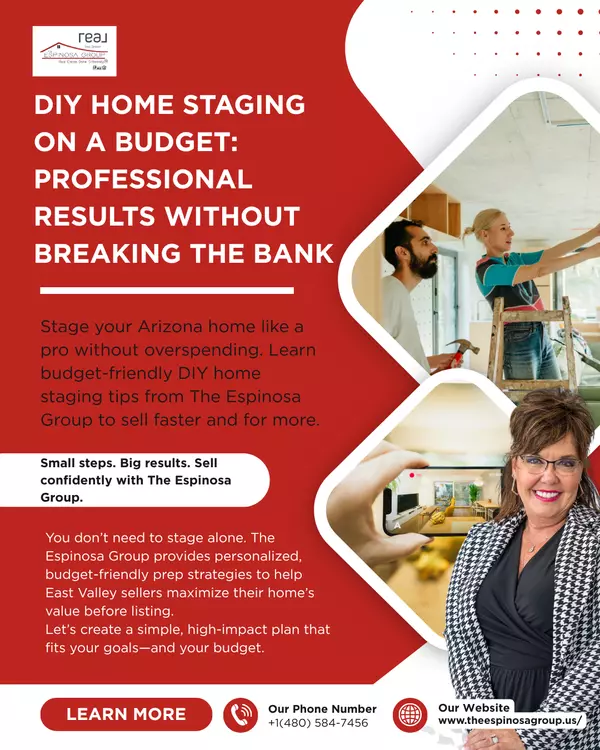How to Price Your Home for a Quick Sale in 2025
Selling a home quickly doesn’t mean you need to sacrifice its value. It’s about understanding the market, presenting your home in its best light, and setting a price that attracts serious buyers while maximizing your return. Whether you’re aiming to relocate fast or simply want to capitalize on a hot market, this guide will help you set the perfect price for a quick and successful sale.
1. Research Your Local Market Thoroughly
To price your home correctly, you need to understand your local real estate market’s dynamics. This involves researching the trends, buyer preferences, and pricing strategies that have recently worked in your area.
Key Steps for Market Research:
- Check Inventory Levels: Low inventory creates demand, often allowing sellers to price higher.
- Track Market Trends: Are home prices rising or stabilizing in your area? Adjust your expectations accordingly.
- Understand Seasonality: For instance, January and spring are popular times for buyers, so pricing competitively during these periods can create urgency.
2. Understand the Psychology of Homebuyers
Buyers want to feel like they’re getting value. Leveraging pricing strategies that appeal to buyer psychology can make your home more attractive.
Psychological Pricing Strategies:
- Price Ending in 9: $299,900 feels less daunting than $300,000, even though the difference is negligible.
- Competitive Pricing: Pricing just below comparable homes can make your property appear as the better deal.
- Emotion-Driven Pricing: Highlight unique features in your listing that justify your price. For example, “Enjoy sunset views from your backyard—priceless memories await!”
3. Leverage Technology and Data Tools
In today’s digital age, advanced tools and online platforms can provide sellers with detailed insights into market trends and buyer behavior.
Helpful Tools to Use:
- Online Valuation Tools: Platforms like Zillow and Redfin offer quick estimates to use as a starting point.
- Neighborhood Insights: Tools like Realtor.com’s Market Trends report can help you see how your area compares.
- Professional Real Estate Software: Your agent will likely use MLS (Multiple Listing Service) data to provide the most accurate pricing guidance.
4. Tailor Your Price to Attract Multiple Offers
In competitive markets, pricing slightly below market value can create a bidding war. The perceived “deal” attracts more buyers, and their competition can drive up the final sale price.
When This Works Best:
- Seller’s Market: Limited inventory means more buyers for fewer homes, increasing competition.
- Highly Desirable Areas: Neighborhoods with top-rated schools, low crime rates, and great amenities often benefit from this strategy.
5. Highlight Value Beyond Price
Sometimes, the price isn’t the only factor buyers consider. Emphasizing additional benefits in your listing can justify your pricing and attract the right buyers.
Examples of Added Value:
- Move-In Ready Features: Newly installed appliances, fresh paint, or updated flooring.
- Lifestyle Perks: Proximity to parks, shopping centers, or public transit.
- Energy Efficiency: Highlight solar panels, energy-efficient windows, or new HVAC systems that save buyers money long-term.
6. Factor in Listing Costs and Timing
Remember, pricing isn’t just about the sale—it’s also about your costs as a seller. The longer your home stays on the market, the more carrying costs you’ll face, including utilities, maintenance, and potential mortgage payments.
Timing Tips:
- List During Active Buying Periods: Early in the year or spring tends to see more motivated buyers.
- Avoid Overpricing: A high price may mean your home sits on the market, creating a negative perception among buyers.
7. Work with an Experienced Real Estate Agent
While online tools are helpful, they can’t replace the expertise of a professional real estate agent. Agents understand local nuances, buyer behavior, and how to position your home competitively.
What Your Agent Can Do:
- Provide a detailed CMA tailored to your property and neighborhood.
- Help you adjust your pricing strategy based on market feedback.
- Market your home effectively to attract the right buyers.
8. Prepare to Adjust if Necessary
Even with the best research and strategy, the market may react differently than expected. Stay flexible and ready to make adjustments if your home isn’t getting the desired attention.
Signs It’s Time to Adjust Your Price:
- Few or no showings after two weeks on the market.
- Lowball offers significantly below your asking price.
- Comparable homes are selling while yours lingers on the market.
9. Avoid Common Pricing Mistakes
Sellers often make missteps when setting their price. Avoiding these pitfalls can save time and prevent lost opportunities.
Common Pricing Errors to Avoid:
- Overpricing Out of Sentimentality: While your home may hold personal value, buyers won’t pay extra for your memories.
- Ignoring Market Feedback: Buyers and their agents may offer feedback on price—take it seriously.
- Not Accounting for Repairs: If your home has visible issues, adjust your price or address them before listing.
10. Price for the Online Search
Most buyers begin their search online, often filtering by price ranges. Pricing your home to align with common search brackets increases visibility.
Examples:
- If buyers are filtering for homes under $500,000, pricing at $499,900 ensures your property appears in their results.
- Avoid oddball prices like $501,765 that may push your listing into a higher bracket.
Why It Matters
Pricing your home correctly from the start creates momentum, attracts motivated buyers, and minimizes time on the market. A strategic price not only increases the likelihood of a quick sale but also ensures you maximize your home’s value.
Ready to Sell Your Arizona Home?
At The Espinosa Group, we specialize in guiding homeowners through the selling process with tailored pricing strategies and expert market insights.
Let’s work together to make your sale a success in 2025!
Categories
- All Blogs (225)
- Contracts, Negotiations & Process (4)
- Home Buying Process (19)
- Home Buying, Selling, and Investing Tips (65)
- how to buy a house (9)
- How to sell your house (11)
- Importance of a Real Estate Agent (1)
- real estate investment strategies (14)
- Real estate Market in Arizona (7)
- ROI tips (14)
- Selling a home (19)
- STAGING DIFFERENTLY (37)
- Staging tips for selling (23)
- THE AGENT (5)
Recent Posts













